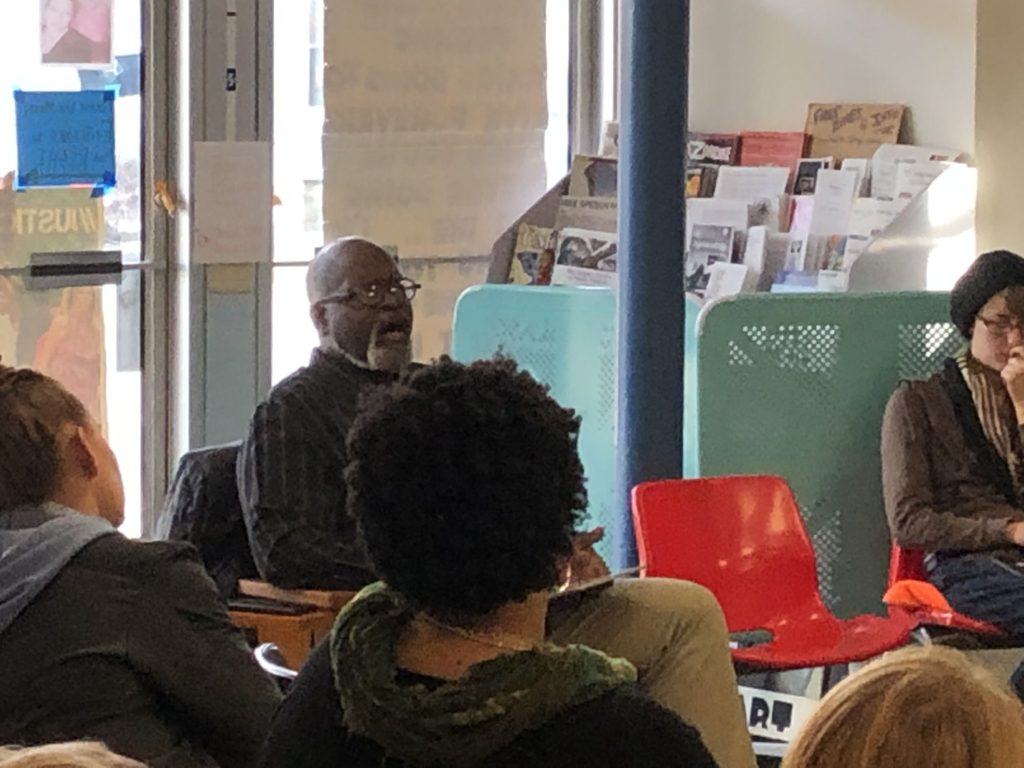
MCDC was very pleased to be among the organizations that collaborated to bring social activist Ed Whitfield to town. Ed has a long history in activism dating back to his participation in the Black Power Movement, and today, he works in non-extractive finance.
Evelyn Wright, also a visitor to Madison, was in the audience and has written about both MCDC and Ed’s talk at the Social Justice Center. His main point was central to MCDC’s mission:
The night’s topic was “Making Sure We Make a Difference.” Ed urged the coop movement to be clear about the sources of inequality and the urgency of redressing it. “We have slipped into language and thinking that miss how we got to where we are,” Ed said, “as if inequality were the result of chance, bad luck, or character defect.” We need to be clear that it came about because of specific historical processes.
“If a community has zero wealth, zero assets, it’s because someone else has them, someone else has taken them. It’s not about the color of your skin. It’s the history. Something happened. People ask me, ‘Ed, when are you going to stop talking about that old stuff?’ When I don’t see the impacts of it all around me anymore.”
Ed also has views that Madison activists need to hear and consider. For example, he’s opposed to universal basic income, because it would reinforce the existing power dynamic in our society, when we need to working to change it. That same reasoning leads to two other perspectives the audience may not have expected:

Ed said that he doesn’t favor expressing calls for social justice, for housing or health care, in the language of human rights. “Who would enforce housing as a human right,” he asked. “The UN?” He prefers to talk about human needs, the power to meet those needs, and where that power currently resides.
“When we talk about power imbalances,” he said, “we are talking about access to tools, and the skills to use those tools. Capital is a tool. Markets are tools. Like any tool, they are good for some things, but not others. Potatoes yes, health care and justice, no.” Access to those tools and skills is fundamental to controlling our own labor, and ultimately our lives. That’s why, he says, when he talks about reparations, he doesn’t talk about giving people money. “They’ll just spend it. We need to give people productive capability, so they have the tools to meet their own needs.”
In other words, the most important thing we can do to make a difference is empower people to take care of themselves, not debate who’s going to take care of them.